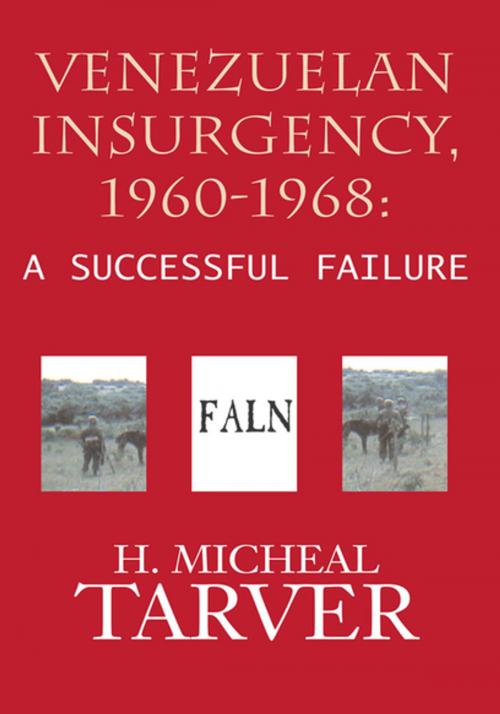| Author: | H. Micheal Tarver | ISBN: | 9781462834600 |
| Publisher: | Xlibris US | Publication: | October 12, 2001 |
| Imprint: | Xlibris US | Language: | English |
| Author: | H. Micheal Tarver |
| ISBN: | 9781462834600 |
| Publisher: | Xlibris US |
| Publication: | October 12, 2001 |
| Imprint: | Xlibris US |
| Language: | English |
Venezuelan Insurgency, 1960-1968: A Successful Failure examines and analyzes the Venezuelan Extreme Left and its activities from the first serious uprising against the government of Venezuelan President Rmulo Betancourt in April 1960 through the Venezuelan national elections of December 1968. As background, an examination of Venezuelan politics begins with the 1899 introduction to power by President Cipriano Castro in order to provide a framework to the development of the political environment from which the prominent insurgency and government leaders emerged. In addition, a summary examination of contemporary global insurgency and terrorism introduces the specific examination of the Venezuelan Extreme Left and the reasons why it viewed guerrilla warfare and urban terrorism as the paths necessary to achieve its goals. The work also undertakes an assessment of the Venezuelan peasantry in order to shed light on the reasons that, in general, they remained loyal to the Venezuelan government rather than support the Left. Finally, the present work presents some conclusions concerning the political impact of the insurgency movement on the Venezuelan democratic process.
Venezuelan Insurgency, 1960-1968: A Successful Failure examines and analyzes the Venezuelan Extreme Left and its activities from the first serious uprising against the government of Venezuelan President Rmulo Betancourt in April 1960 through the Venezuelan national elections of December 1968. As background, an examination of Venezuelan politics begins with the 1899 introduction to power by President Cipriano Castro in order to provide a framework to the development of the political environment from which the prominent insurgency and government leaders emerged. In addition, a summary examination of contemporary global insurgency and terrorism introduces the specific examination of the Venezuelan Extreme Left and the reasons why it viewed guerrilla warfare and urban terrorism as the paths necessary to achieve its goals. The work also undertakes an assessment of the Venezuelan peasantry in order to shed light on the reasons that, in general, they remained loyal to the Venezuelan government rather than support the Left. Finally, the present work presents some conclusions concerning the political impact of the insurgency movement on the Venezuelan democratic process.















